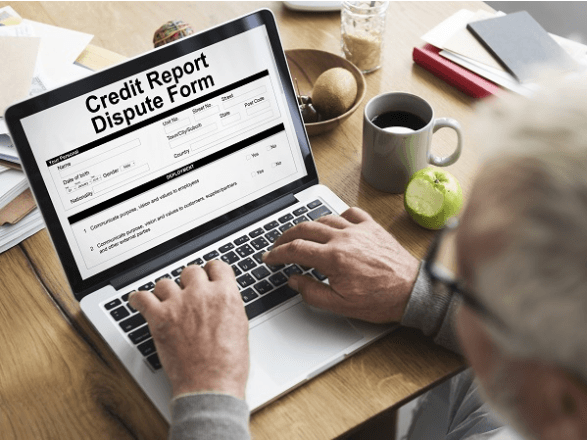You may have been very excited about buying a new car, already envisioning yourself driving it to and from work, showing off the pictures to friends and family, and more–with credit report cleanup the last thing on your mind. The sales pitch at the car dealership may have been very smooth, offering great terms, and a payment you would have no problem with—especially with no down payment and a super low-interest rate. Unfortunately for many, this scenario comes to a screeching halt when the finance department announces they still need to run your credit to get the paperwork going.
If your credit is not exactly stellar, you may find yourself with a higher interest rate and a significant down payment. Or, you may not qualify at all despite having a good job and every intention of paying your bills. At this point, the power of credit report shows itself. We all enjoy that when our credit score is high, but when it is low, we may see doors that were once open beginning to close. For most, credit takes a dive when we are struggling because of medical bills, loss of income, or unexpected and expensive events. The burden of student loans may be weighing you down, or you may be drowning in credit card debt that seems impossible to resolve. No matter the cause, if your credit score has taken a hit, you are probably wondering what you can do—and whether it is possible to get a creditor to reverse the bad things they have reported.
The first tip is to beware of the quick fix. If that were possible, few people would have to worry about their credit scores; however, keep in mind that debt collectors have one goal in mind: to get as much money out of you as possible. After a while, that may turn into a willingness to negotiate and get whatever they can, still hoping to make a profit if they bought your account for pennies on the dollar—a common practice.
Some debt collectors may be willing to adjust or delete the information they have given to credit reporting agencies, however, in exchange for your paying your bill. They may agree to report that an account (once charged off) has now been paid in full, or they may even be willing to remove that account from your report altogether as you have resolved the bill. While this can be a controversial practice and many collectors will not agree to do it, if you find a company in agreement with your proposal, the next step is seeing that they follow through. This is where most consumers begin to run into trouble with negotiating with debt collectors. There must be a written agreement, and you may feel more comfortable working with an attorney at this point.
You must also be very careful in general, as you are treading in territory where debt collectors are very experienced. For that reason, contact an experienced debt settlement law firm like Fitzgerald & Campbell, APLC. While we understand you want to clean up your credit, we can help you begin with the most important step of settling debts—and often at substantially less than what was originally owed. It is crucial to be smart about your debt settlement, and that means putting the responsibility on the debt collector or creditor to show proof of your debt first and foremost. Also, an inventory of your debts could show that some of them will be falling off your credit soon (due to the seven-year rule) anyway. There are many details we can help you consider.

Our attorneys have decades of experience in serving clients as they navigate through challenging financial situations, to include settlement with creditors, bankruptcy, and other debt management processes. Let us review your case and discuss what would work best for you. We are here to help!
Call us today for a free consultation at (844) 431-3851, or email us at info@debtorprotectors.com.

